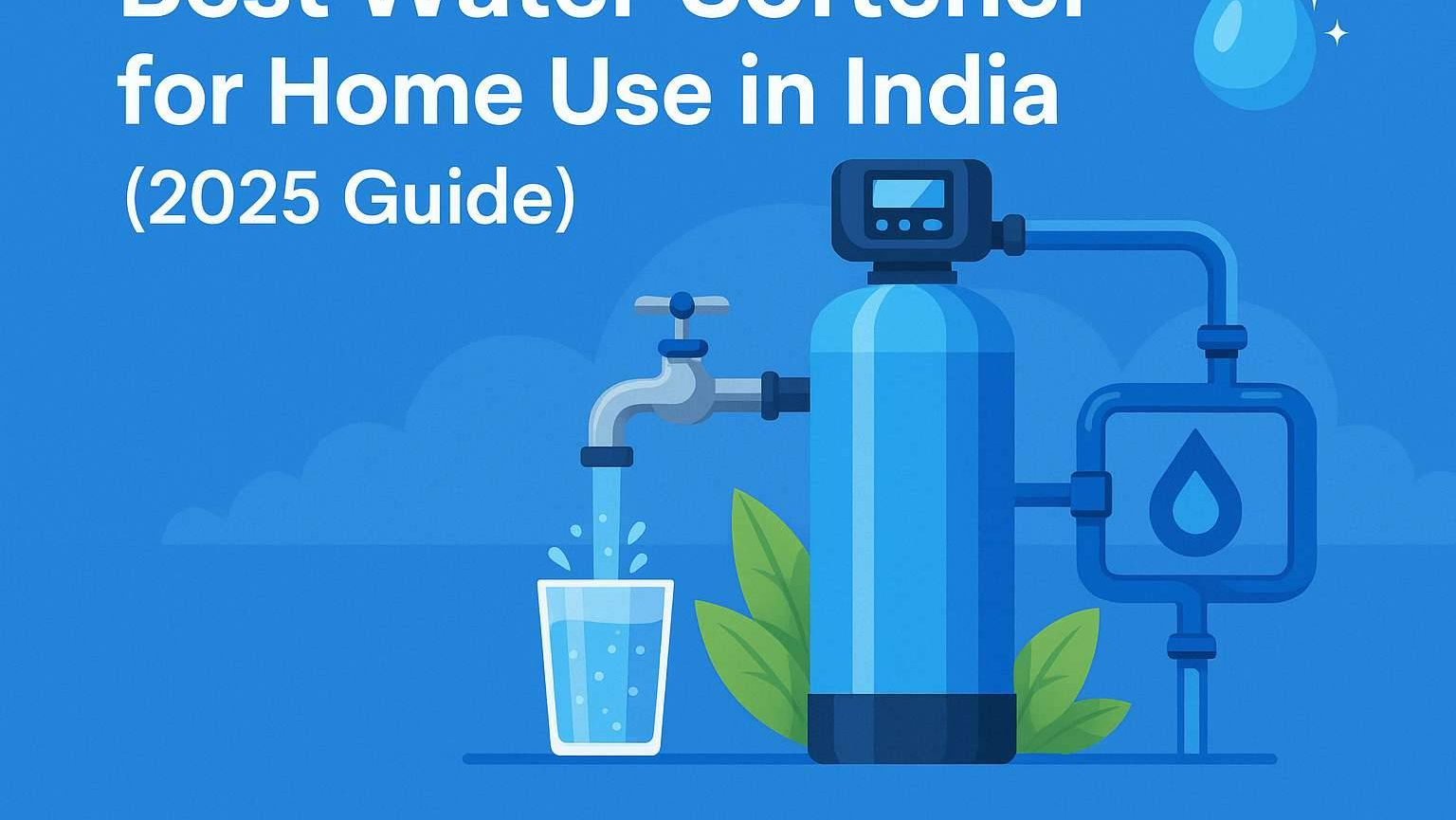Now Reading: What Every Homeowner Needs to Know About Water Softeners 2025
-
01
What Every Homeowner Needs to Know About Water Softeners 2025
What Every Homeowner Needs to Know About Water Softeners 2025

Table of Contents
Water is a basic need in every Homeowner . We use it for drinking, cooking, bathing, washing clothes, and cleaning dishes. But what if the water in your home is damaging your appliances, drying out your skin, and costing you money without you realizing it? That’s Homeowner what hard water does and a water softener system might be the solution you need.
In this article, we’ll explain what a water softener system is, how it works, the benefits it offers, and how to choose the right one for your home.
What Is Hard Water?
Before understanding a water softener system, it’s important to know what hard water means.
Hard water contains a high amount of dissolved minerals, Homeowner mainly calcium and magnesium. While not harmful to health, these minerals can cause problems for your plumbing and appliances. They build up over time, creating limescale that clogs pipes, shortens the life of appliances, and makes soaps and detergents less effective.
Some common signs of hard water include:
- White spots on dishes and glassware
- Dry, itchy skin after bathing
- Stiff laundry and faded clothes
- Reduced water pressure from faucets and showerheads
- Higher energy bills due to inefficient appliances
What Is a Water Softener System?
A water softener system is a home appliance designed to Homeowner remove excess minerals from hard water. The most common type is a salt-based ion exchange softener. This system replaces the calcium and magnesium ions with sodium or potassium ions, effectively “softening” the water.
There are also salt-free softeners, which don’t remove Homeowner minerals but condition the water to reduce scale buildup. While they are low maintenance, they may not be as effective in very hard water areas.
How Does a Water Softener Work?
A typical salt-based water softener system includes three main Homeowner components:
- Mineral Tank – where the actual ion exchange takes place.
- Brine Tank – stores the salt that regenerates the system.
- Control Valve – regulates water flow and triggers regeneration cycles.
When hard water enters your home, it flows through the mineral tank. The calcium and magnesium ions are exchanged for sodium or potassium ions. Over time, the system gets saturated and needs to be flushed with a salt solution from the brine tank — a process called regeneration.
Benefits of a Water Softener System
Investing in a water softener system can offer several long-term Homeowner advantages for homeowners:
1. Longer Life for Appliances
Homeowner Water heaters, washing machines, dishwashers, and coffee makers all perform better and last longer with soft water. No more scale buildup ruining your expensive devices.
2. Cleaner Plumbing System
Homeowner Soft water prevents limescale deposits in pipes, helping maintain proper water pressure and reducing the risk of clogs or costly plumbing repairs.
3. Softer Skin and Hair
Homeowner Hard water can leave your skin feeling dry and your hair dull. With a water softener, your skin feels smoother, and your hair becomes more manageable.
4. Sparkling Clean Dishes and Laundry
Soft water improves soap performance, leading to cleaner dishes, brighter clothes, and less detergent usage.
5. Lower Energy Bills
A water softener system helps appliances run more efficiently, which can cut down on energy consumption and utility bills over time.
Choosing the Right Water Softener System
There are many models and brands in the market, so it’s important to pick one that suits your household needs.
Key Factors to Consider:
- Water Hardness Level: You can test this with a home kit or contact a local water expert.
- Household Size: Bigger families require systems with higher capacity.
- Regeneration Type: Look for systems with efficient automatic regeneration for less maintenance.
- Salt vs. Salt-Free: Salt-based systems are more effective but require more upkeep. Salt-free options are eco-friendly but less powerful.
- Budget: Prices range from ₹20,000 to over ₹1,00,000 depending on features, brand, and capacity.
Maintenance Tips
A water softener is not “set it and forget it.” Proper maintenance helps extend its life and efficiency:
- Check salt levels monthly and refill as needed.
- Clean the brine tank once a year.
- Replace resin beads or filters every 5–10 years, depending on usage.
- Schedule professional servicing for complex issues or system updates.
Is a Water Softener Worth It?
For homes in areas with hard water, the answer is usually yes. Though the upfront cost may seem high, a water softener system pays for itself over time through lower utility bills, fewer appliance repairs, and better overall water quality.
Final Thoughts
A water softener system is more than just a luxury it’s a smart investment in the long-term health of your home and family. From smoother skin and shiny hair to cleaner dishes and longer-lasting appliances, the benefits are hard to ignore.
If you’re facing signs of hard water, it may be time to explore your options. Whether you choose a salt-based or salt-free system, making the switch can dramatically improve your home’s water quality and your daily life.
Read More:- Shobha Realty Launches Its Most Luxurious Project Yet—Full Details Inside 2025






















